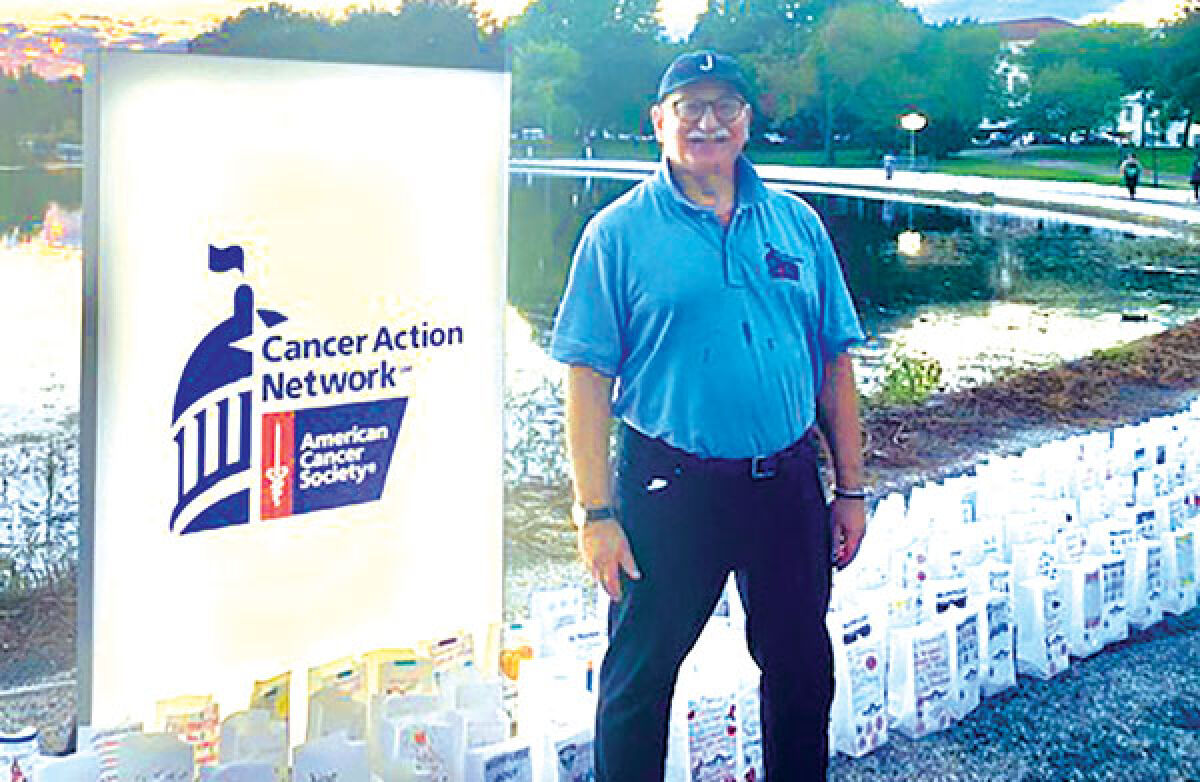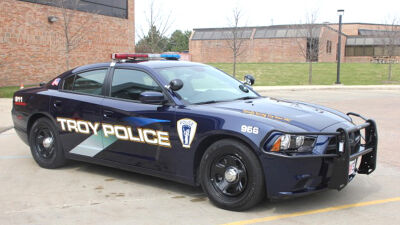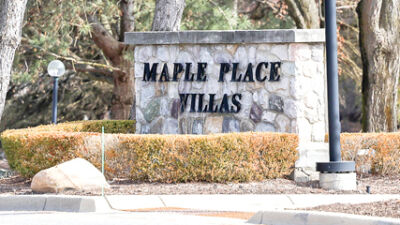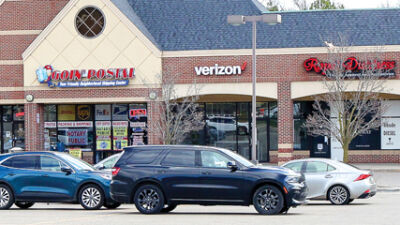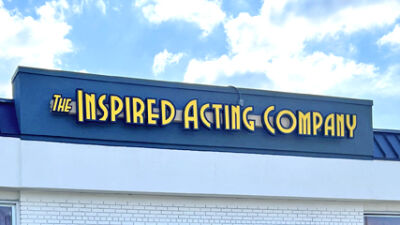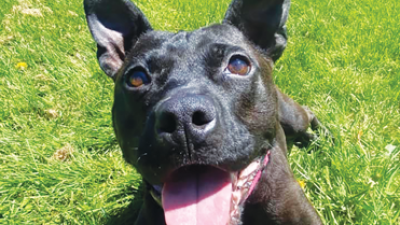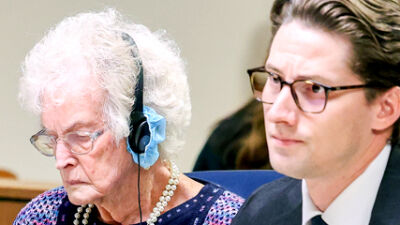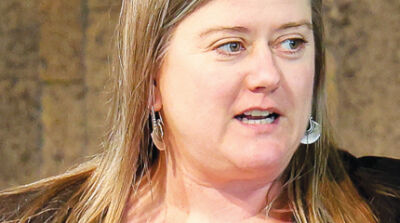WEST BLOOMFIELD/WASHINGTON, D.C. — This past September, West Bloomfield resident Jay Kalisky was one of approximately 550 people from across the United States to travel to Washington, D.C., as part of the American Cancer Society Cancer Action Network’s Leadership Summit and Lobby Day Sept. 11-14.
Kalisky estimated that he has also taken approximately five other trips to D.C. to participate in lobbying efforts.
According to a press release, cancer patients, survivors and their loved ones made the trip, with individuals from nearly every congressional district attempting to spread their message to elected officials.
“Annually, ACS CAN creates goals for the year, things that we’re trying to accomplish, so when we go to Washington, our No. 1 task is to communicate those goals,” said Kalisky, who has been an ACS CAN volunteer for approximately eight years. “All these elected officials are very, very busy, and they oftentimes know something about what we’re looking for, but sometimes they know more, sometimes they don’t, and so our job is to educate the elected official and, equally as important, their staff. The staff is normally the ones that does all the research. … Sometimes, we meet with the elected official; sometimes, we meet with the staff members.”
This year, Kalisky said, he met with staff members of U.S. Reps. Debbie Dingell, Rashida Tlaib and Brenda Lawrence.
“We pretty much have a volunteer for each district, of which there are 14 districts, and I am in District 14,” Kalisky said.
Kalisky also supported other volunteers, in regard to their respective districts.
He said his No. 1 mission is to fund the cure for cancer.
Although his volunteer work with ACS CAN spans about eight years, Kalisky has volunteered for the American Cancer Society for approximately 40 years.
He shared what led to his involvement.
“My mom, when I was 10 years old, got cancer; she had non-Hodgkin’s lymphoma,” Kalisky said. “The results that you’re getting today are substantially better than when my mom, in 1967, got cancer, and she died in 1977, 10 years later, when I was 20 years old. … It’s my memories of that and being a caregiver … that is, I would say, one of the major motivations. My sister, Katie, is an 18-year breast cancer survivor.”
As Kalisky is an ACS CAN lead for District 14, Ypsilanti resident Jennifer Belaire takes on that role for District 12.
Her reason for getting involved is similar to Kalisky’s. Her father died from lung cancer approximately 23 years ago at the age of 51.
“You can give money to any charity, but it just didn’t feel like that was doing enough to stop someone else from having to go through this,” Belaire said. “It was really to get the research and funding so that we could try to find some cures for cancers, or at least make it so that it’s not a death sentence when you hear those words. … I thought that would be more of a tribute to him than just throwing cash at somebody else to do it.”
ASC CAN’s specific goals this year include getting support for an increase in federal funding for cancer research through the National Institutes of Health and aiming for an increase in the diversity of participants in clinical trials by ensuring that clinical trial sponsors can cover patients’ trial-associated costs, such as lodging and transportation.
Another goal of the Leadership Summit and Lobby Day this year was to encourage elected representatives to support legislation to create a pathway for Medicare to cover new multi-cancer early detection tests after a test is approved by the Food and Drug Administration.
Kalisky provided details about ACS CAN’s attempt to get support for a bill known as the DIVERSE Trials Act, which is House Resolution 5030.
“Minorities, rural individuals, we need them to participate in the study,” he said. “And although the actual medical treatment is covered 100%, the transportation, the food and the lodging is not. Under the current law, when people get grants, they’re not allowed to spend money (to) pay people to participate in the study — it’s illegal. This bill is gonna make it legal to assist people with transportation, food and lodging so that minorities and others who can’t afford to be in the program can still be in the program so we have a diverse enough group … so that more of the trial results will be used, which will help move forward the different treatments that are out there.”
According to congress.gov, the bill also expands reporting by laboratories that test for and diagnose COVID-19, and it requires a study on data collection and data sharing during public health emergencies.
As for the Medicare Multi-Cancer Early Detection Screening Coverage Act of 2021 bill, known as HR 1946, according to congress.gov, “This bill provides for Medicare coverage and payment for multi-cancer early detection screening tests that are approved by the Food and Drug Administration and that are used to screen for cancer across many cancer types.”
Belaire expressed confidence that the bills will eventually successfully pass through the legislative process.
“I’m optimistic,” she said. “I think it’s probably one of those very rare things where it affects everybody, so it’s not a partisan issue. And so, they usually tend to put the money towards the research, putting it into finding and funding cures. So I feel pretty good.”
Kalisky shared his perspective as to what the primary message was on Leadership Summit and Lobby Day.
“The No. 1 thing that we were communicating to our elected officials was asking them to fund the National Institutes of Health this year with $49 billion, something like a $4.1 billion increase from last year,” he said.
Kalisky explained why his No. 1 focus is funding research.
“The funding of research will one day result in a cure for cancer, and if not a cure for cancer, many, many new treatments that will provide quality-of-life and quality care to cancer patients with the discoveries that are being made in oral chemotherapy and targeted therapies that weren’t available during the period of time that my mom was alive,” he said.
Aside from it being Leadership Summit and Lobby Day, Sept. 13 was also when the ASC CAN hosted its 12th “Lights of Hope” event, which is when luminaria bags that have been donated in memory of a loved one who has been touched by cancer are displayed in communities across the United States, including in Washington, D.C.
Kalisky said he had around 250 luminaria bags, which he displayed around his home and in D.C.
“Just seeing 40,000 or 50,000 bags all in a row, each one representing a person, it’s quite an experience,” he said. “It’s very moving and very emotional.”
Kalisky said that this year’s “Lights of Hope” event raised approximately $880,000 overall, with more than 55,000 luminaria bags being sold, and that he personally raised around $4,000.
Kalisky also said that the staff members of elected officials he spoke with were all very supportive.
He evaluated how the trip went.
“It was, overall, very, very positive,” Kalisky said. “Just the feeling of being with 550 people who have a common thought, have a common interest, have a common passion — the environment is almost euphoric. Even though there’s a lot of sadness in cancer, there also is a lot of hope. Our job is to bring that hope back.”
Kalisky, who has been married to his wife, Susan, for more than 40 years, said he grew up in Chicago and is a partner in a certified public accountant firm.
He graduated from Oakland University with a Bachelor of Science degree in management and accounting, and has two children and two grandchildren.
Kalisky discussed the possibility of eventually finding a cure for cancer.
“I’m very optimistic,” he said. “I think that there are a huge, huge, number of people that are committed to finding a cure for cancer.”
 Publication select ▼
Publication select ▼